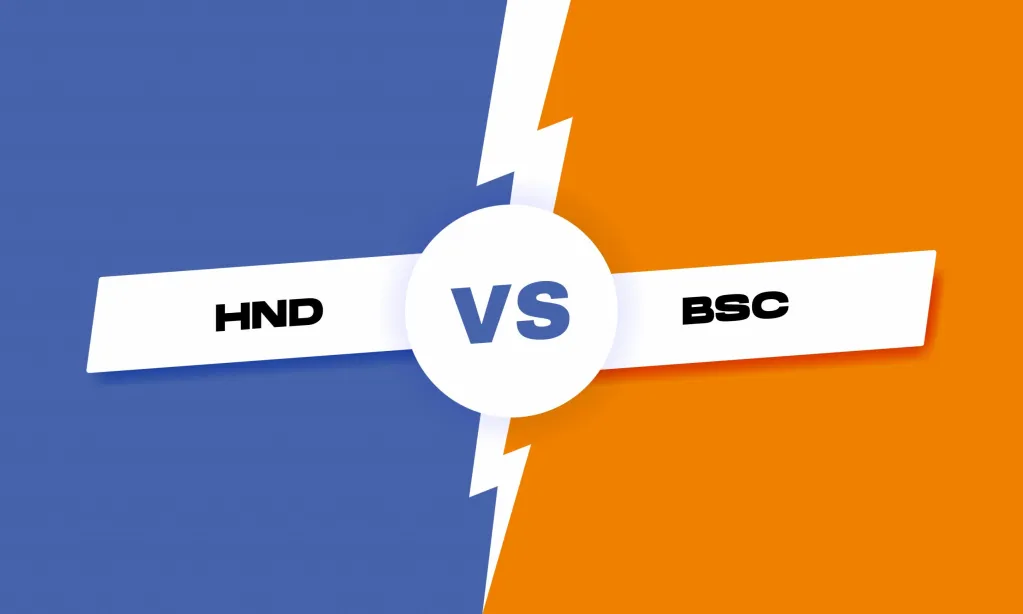When it comes to pursuing higher education in Nigeria, it is important to understand the differences between BSc, HND, OND, NCE, and A-Level qualifications. Each of these credentials has its own unique purpose, requirements, and career pathways. Choosing the right one can significantly impact your professional journey.
In this detailed guide, we will break down the meaning of BSc, HND, OND, NCE, and A-Level, their durations, entry requirements, focus areas, and how they compare. Whether you are a student planning your academic future or a parent guiding your child, this post will help you make an informed decision.
Understanding the Educational Qualifications in Nigeria
In Nigeria, tertiary education offers several routes depending on a student’s career goals, academic strengths, and interests. These paths include:
-
Bachelor of Science (BSc)
-
Higher National Diploma (HND)
-
Ordinary National Diploma (OND)
-
Nigerian Certificate in Education (NCE)
-
Advanced Level (A-Level)
Each qualification serves a specific role within the broader Nigerian education system.
What is a BSc (Bachelor of Science)?
The BSc, or Bachelor of Science, is one of the most recognized university degrees in Nigeria and around the world.
| Feature | Details |
|---|---|
| Meaning | Bachelor of Science |
| Duration | 4 to 6 years depending on the course |
| Entry Requirements | Senior Secondary Certificate Examination (SSCE), JAMB UTME, and sometimes Post-UTME |
| Focus | Provides in-depth academic knowledge in fields like Sciences, Engineering, Medicine, Law, Pharmacy, and Agriculture |
BSc degrees are typically offered by universities. They prepare students with both theoretical and practical knowledge necessary for professional careers. Some common variations include B.Tech (Bachelor of Technology), B.Ed (Bachelor of Education), LLB (Bachelor of Laws), MBBS (Medicine and Surgery), and B.Pharm (Bachelor of Pharmacy).
Why Choose a BSc?
Students aiming for careers in prestigious professions like engineering, law, medicine, and technology often pursue a BSc degree. It is highly respected and offers great career mobility.
What is an HND (Higher National Diploma)?
The Higher National Diploma (HND) is a post-OND qualification awarded by polytechnics and some specialized colleges in Nigeria.
| Feature | Details |
|---|---|
| Meaning | Higher National Diploma |
| Duration | 2–3 years (after OND and a year of Industrial Training) |
| Entry Requirements | OND certificate, one-year Industrial Training (IT), and sometimes JAMB UTME |
| Focus | Practical and technical skills in fields like Engineering, Business, and Technology |
The HND qualification emphasizes practical skills more than theoretical knowledge. It is especially valuable in industries that require hands-on expertise.
Why Choose an HND?
Students who prefer acquiring direct, technical, and job-ready skills will benefit from pursuing an HND. It provides solid professional opportunities, especially in technical industries.
What is an OND (Ordinary National Diploma)?
The Ordinary National Diploma (OND) is an entry-level tertiary education qualification awarded by polytechnics in Nigeria.
| Feature | Details |
|---|---|
| Meaning | Ordinary National Diploma |
| Duration | 2 years |
| Entry Requirements | SSCE results, JAMB UTME |
| Focus | Foundation in technical and vocational fields |
An OND certificate offers a strong stepping stone toward an HND or can sometimes be used for direct employment in technical sectors.
Why Choose an OND?
The OND qualification is ideal for students who want a faster route to gaining technical skills or entering the workforce without committing to a full university degree program initially.
What is an NCE (Nigerian Certificate in Education)?
The Nigerian Certificate in Education (NCE) is designed for individuals who want to become professional teachers.
| Feature | Details |
|---|---|
| Meaning | Nigerian Certificate in Education |
| Duration | 3 years |
| Entry Requirements | SSCE results, JAMB UTME |
| Focus | Teaching skills and pedagogical training for primary and junior secondary schools |
Students are trained in both subject knowledge and teaching methodology, preparing them to handle young learners effectively.
Why Choose an NCE?
If you are passionate about educating future generations, the NCE qualification is the best route into teaching at primary and junior secondary school levels in Nigeria.
What is an A-Level (Advanced Level)?
The A-Level qualification is a pre-university program designed to prepare students for direct entry into the second year of a university degree program.
| Feature | Details |
|---|---|
| Meaning | Advanced Level (including IJMB, JUPEB, Cambridge A-Level) |
| Duration | 1–2 years |
| Entry Requirements | SSCE results |
| Focus | Prepares students for direct admission into universities without JAMB UTME |
A-Level programs are an excellent alternative to the traditional university entry route via JAMB.
Why Choose an A-Level?
Students who want to bypass the long and often competitive JAMB process can opt for A-Level qualifications and gain direct entry into their preferred universities.
Comparing BSc, HND, OND, NCE, and A-Level in Nigeria
Here’s a comprehensive comparison table to summarize the differences between BSc, HND, OND, NCE, and A-Level:
| Qualification | Meaning | Duration | Entry Requirements | Focus |
|---|---|---|---|---|
| BSc | Bachelor of Science | 4–6 years | SSCE, JAMB UTME, Post-UTME | In-depth academic and professional knowledge |
| HND | Higher National Diploma | 2–3 years after OND | OND, IT, possibly JAMB | Practical technical training |
| OND | Ordinary National Diploma | 2 years | SSCE, JAMB UTME | Technical/vocational foundation |
| NCE | Nigerian Certificate in Education | 3 years | SSCE, JAMB UTME | Teacher training for schools |
| A-Level | Advanced Level | 1–2 years | SSCE | Direct university admission (bypasses JAMB) |
Conclusion: Which Educational Qualification is Best for You?
Choosing between a BSc, HND, OND, NCE, and A-Level qualification depends on your career goals, academic performance, and personal interests.
-
Pursue a BSc if you aim for a professional, prestigious career.
-
Go for an HND if you prefer a hands-on technical profession.
-
Start with an OND if you want quick entry into the workforce or later move to HND.
-
Opt for an NCE if you are passionate about teaching and education.
-
Choose an A-Level if you plan to fast-track your university admission without JAMB stress.
Understanding the meaning of BSc, HND, OND, NCE, and A-Level and their differences will guide you in making the best decision for your future.
If you found this guide helpful, kindly share it with students, parents, and guardians who may be seeking clarity on Nigeria’s educational qualifications. For more updates on Nigerian tertiary education qualifications, bookmark our site and stay informed!


